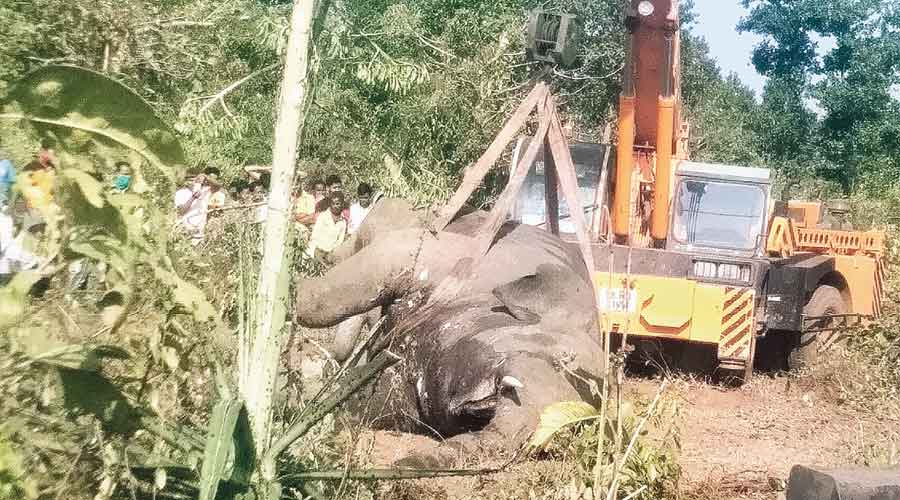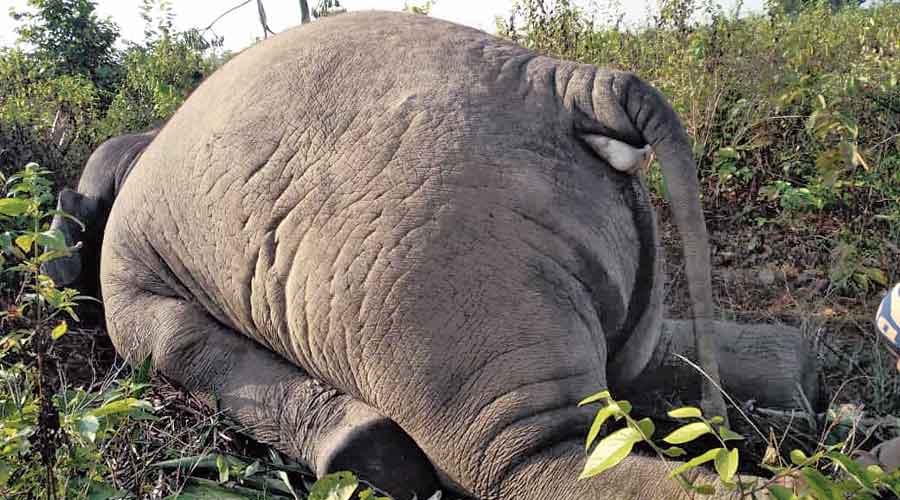An adult tusker died of electrocution inside the Nischinta forest near Kalaikunda, under the Kharagpur forest division in West Midnapore, on Monday morning.
A forest department official said the elephant was moving alone through the forest when it came in contact with a low-hanging high-tension wire of around 11,000 volts. It touched the wire while crossing an area that has open land interspersed with trees.
“The preliminary post-mortem report confirms that the elephant died of electrocution,” the official said. “Villagers and a forest patrol team spotted the elephant lying inside the forest on Monday morning.”
After confirming that the elephant had died, forest officials called in a hydraulic crane and a truck to remove the carcass.
“We have ruled out foul play because the elephant was not touched or harmed in any way. There are no farm areas in the vicinity,” said the official.
The divisional forest officer of Kharagpur, Sivanand Ram, said the elephant was aged around 20 and was not part of a herd.
Sagnik Sengupta of NGO Sage, which works for animals, said it was not uncommon for high-tension wires in forested areas to sag, causing them to come closer to the ground.
“The suspension of the wires changes over time. They pose a risk to passing wild animals when they sag and come closer to the ground. As elephants are large animals, the chances of them getting in touch with these wires are the highest,” said Sengupta.

A hydraulic crane being used to remove it
V.K. Yadav, the chief wildlife warden of Bengal, said it was “extremely unfortunate” that the elephant died of electrocution.
The forest department, he said, is going to set up a task force to ensure that animals don't come in contact with power lines. Such a task force functions in the forests of north Bengal.
“We have spoken with officials from the power department and they have promised us all help,” said Yadav.
“The task force will keep an eye on high-tension power lines passing over animal corridors and also electricity lines and fences set up by villagers to prevent animals from entering their fields.”











